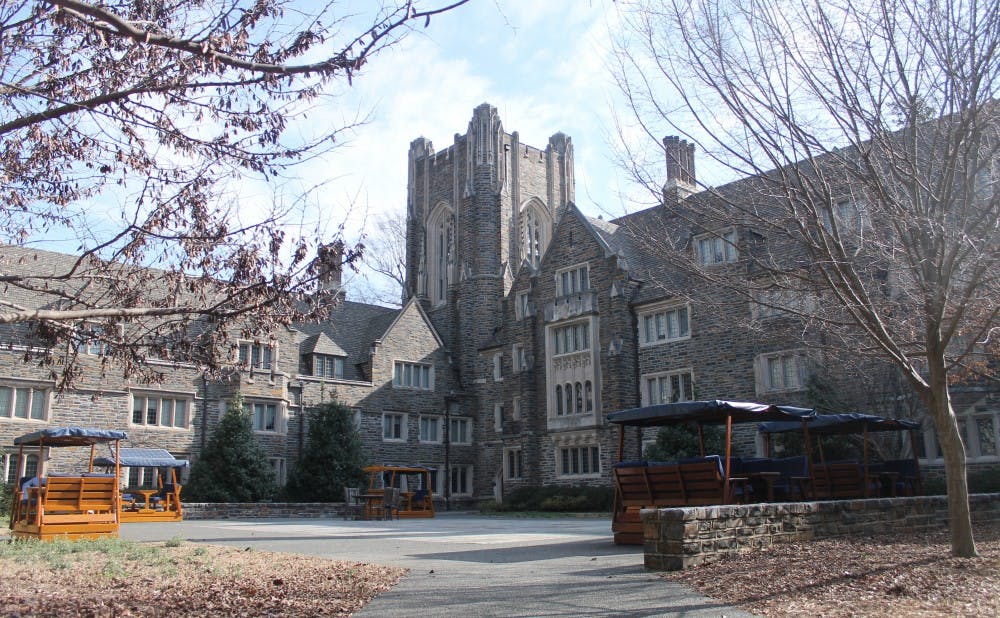I disagreed with quite a bit of the content of my fellow columnist Lizzie Bond’s latest column, but I want to focus on one point in particular: her assertion that “Duke students who arrive [at Duke]… discover that an on-campus residential community is a luxury, not a right.” Let’s slow down and consider whether or not human beings inherently have a right to community, both because this question is important in and of itself, but also because our answer to this question has serious implications for how we ought to structure the future of housing at Duke.
Let’s review some things we all know to be true about the nature of communities. First, generally speaking, communities are not spontaneous creations. The best communities are consciously created, defined and structured. Second, let’s remember that this process of creation is actually somewhat difficult. Creating a healthy, strong and fulfilling community takes time and effort, careful planning and care. Just ask the rush chairs of any prominent SLG or Greek life organization on campus. Finally and most importantly, communities have limits. If a community is to survive, its membership must have defined characteristics and be limited in scope. After all, a community that consists of everyone ultimately consists of no one because such a community lacks a sense of identity and character.
So when Bond implies that we have a “right” to community, I am left deeply confused. Human beings do not have a right to associate with other human beings. Moreover, this principle applies regardless of whether the situation is an individual interacting with another individual or if the situation is an individual interacting with a group of individuals (a.k.a., a community). So I ask, on what basis do we have a right to associate with other human beings? Furthermore, if we do have a human right to the community of others and if that right is inalienable (as all human rights are), are we allowed to exercise that right regardless of whether the other people in question consent? I’m sure most people, especially on Duke’s campus, would have an issue with that implication. Rather, we have access to the privilege of associating with others after earning their trust and respect and receiving their consent. But to play with Lizzie’s idea that we have a right to community a little more, let’s try applying that idea to a practical scenario on campus.
Suppose that I walked up to Ryan Williams, a fellow columnist and the rush chair for Cooper, and demanded to enter a Cooper event because of my inalienable “right to community.” I’m not a betting man, but I would bet that Ryan would, entirely reasonably, tell me to go to hell. If he cared to explain his reasons, he would likely say that I had not contributed to Cooper’s community, that I had not paid dues, that I had not helped set up, that I had not respected the community’s customs by going through the entirety of the rush process, and that, therefore, I had no right to be a part of Cooper’s community. In short, he would explain that I had not earned the privilege of being a part of Cooper. And he would be right—in no way, shape, or form would I deserve to enter that event and mingle amongst the wonderful members of Cooper.
I look forward to continuing the debate about the future of selective housing on the pages of the Chronicle, but I would encourage Lizzie, and all my fellow columnists, to conduct this debate with prudence. No one needs to make grandiose, unsupported claims about the rights of man just to explain an objection to selective housing on a college campus.
Reiss Becker is a Trinity sophomore. His column runs on alternate Mondays.
Get The Chronicle straight to your inbox
Signup for our weekly newsletter. Cancel at any time.

